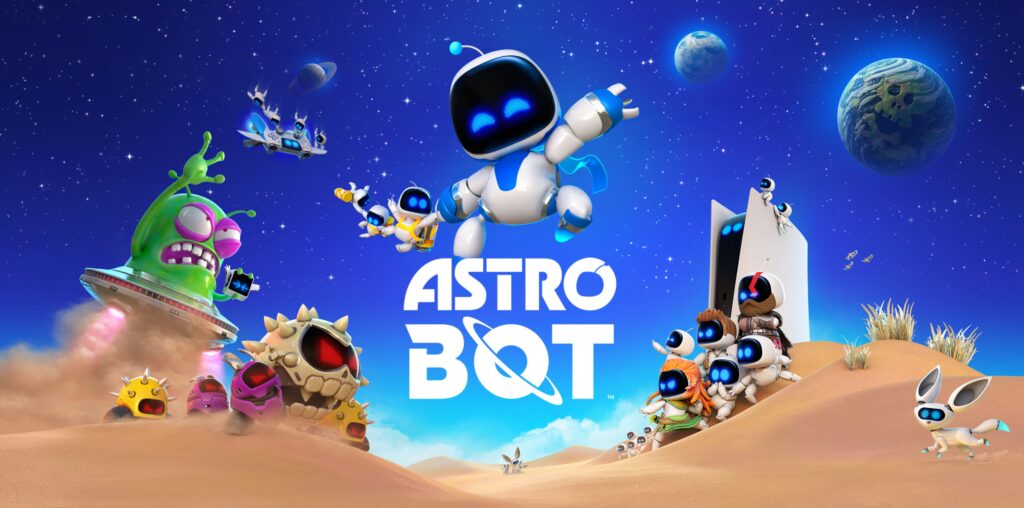It’s that time of the year again when The Game Awards announced their Game of the Year nominees, and out of all of the competitors, the one game that should take home the crown is none other than Astro Bot.
Last year, it was a foregone conclusion that Baldur’s Gate III would take home the win, but that isn’t the case this year. There are six nominees as always – Astro Bot, Balatro, Black Myth: Wukong, Elden Ring: Shadow of the Erdtree, Final Fantasy VII Rebirth, and Metaphor: ReFantazio – but there is no frontrunner this time. Sure, people will have their favorites, and I’m no different, but I feel pretty certain that all of the signs point to Astro Bot taking home top honors on December 12th.
Now, of course, the easiest justification for why it will win is to simply say that it’s the best game of the six. I can only speak for myself, but I had more fun playing Astro Bot than any of the other nominees, and whenever I hear any online discussion about it, it’s never in a negative light. I can bring up any of the other five games, except for maybe Balatro, and I can probably find someone sharing their criticisms of each game, whether it be the unbalanced difficulty of Shadow of the Erdtree or the bloated scope and scale of Final Fantasy VII Rebirth. Not so with Astro Bot.

It says a lot that the discussion around Astro Bot managed to stay so positive after several months on the market. Keep in mind, Astro Bot was released at the worst possible time for Sony, right between the shuttering of Concord and the reveal of the highly ridiculed PS5 Pro. Those few weeks were rough for Sony, yet Astro Bot managed to keep an air of optimism around both the system and the state of the video game industry following numerous studio closures and financial disappointments. Even GOTY nominees weren’t spared from this depressing reality, as Square Enix has publically stated that Final Fantasy VII Rebirth disappointed financially, leading to several questions about the direction of the franchise.
Astro Bot is simply a celebration of what makes video games fun. It doesn’t have a glut of content and can be completed in only a handful of hours, but it’s clear that Team Asobi poured their heart and soul into making the game as charming as it is. That isn’t to say that the other GOTY nominees don’t also have heart and soul, but it’s most evident with Astro Bot. If the Game Awards is about celebrating the medium of video games, which is increasingly questionable given Geoff Keighley’s managing of past events, and why video games are fun to play, logically, the winner should be the game that is the most fun to play.
That isn’t always the case, though. If anything, The Game Awards has become highly predictable with what it ultimately declares the Game of the Year. With a few exceptions, they usually praise large open-world games that can take dozens, if not hundreds, of hours to play through and almost always favor AAA blockbusters. Since its inception in 2014, the only time a Game of the Year winner went to a non-AAA studio was in 2021 when It Takes Two won, which was a year where numerous games were delayed due to the ramifications of the COVID-19 pandemic. That’s not to say it wasn’t a great game, but it was an outlier compared to past winners.

That may make you say that The Game Awards is set to keep rewarding massive AAA games with skyscraper budgets, but I’m not too certain about that. Shadow of the Erdtree has faced steep criticism over its inclusion as a nominee since The Game Awards seemed to go out of its way to give the game a nomination despite not allowing DLC to be nominated for GOTY before. Metaphor: ReFantazio is great, but it’s a bit too niche to win GOTY, despite the sales figures it has already accrued. Final Fantasy VII Rebirth is also a critical darling, but when compared to Final Fantasy VII Remake, it’s the weaker game.
Then that leaves us with the three relatively smaller titles, and of those three remaining games, Astro Bot has the critical praise to get it over the finish line. Black Myth: Wukong may have the sales numbers, but it’s by far the weakest game of the six nominees, and Balatro is a cult game that most casual gamers probably haven’t even heard of. When you look at everything from that perspective, it just makes logical sense for Astro Bot to take home the big prize.
And doesn’t that feel good to say? A smaller, polished platformer from a small studio winning Game of the Year? After a year where massive games failed one after the other, with major studios facing mounting problems from cashing in on industry trends instead of innovating, a win for Astro Bot could send a message that smaller titles made by smaller teams have a place in the modern-day gaming industry. A game that is focused. A game with a realistic budget that can be beaten in a weekend. A game that anyone can play and enjoy. That’s the kind of game that can and should win Game of the Year.
Astro Bot is available now on PlayStation 5.

